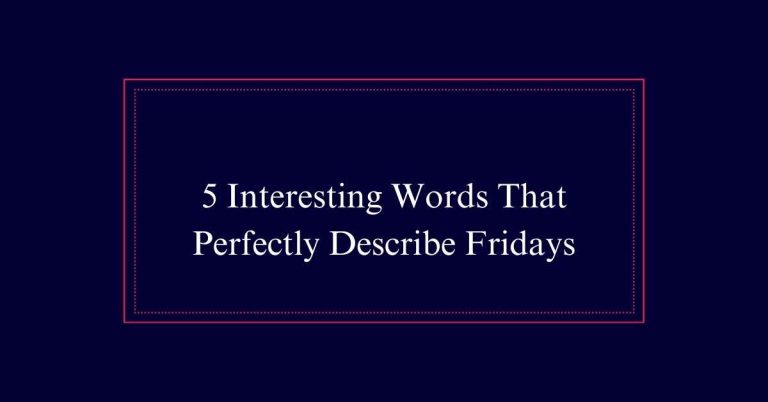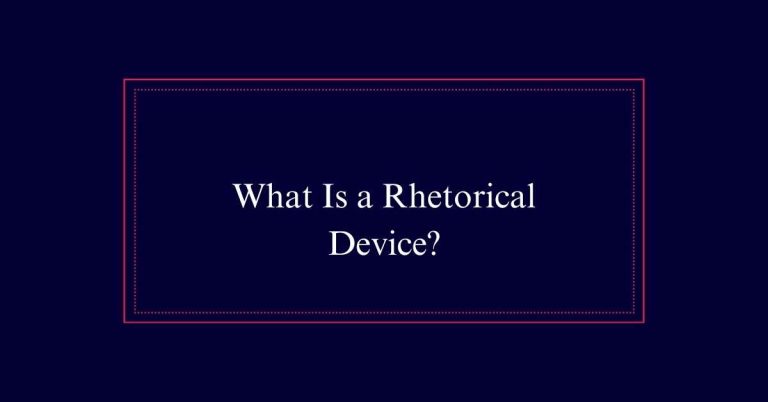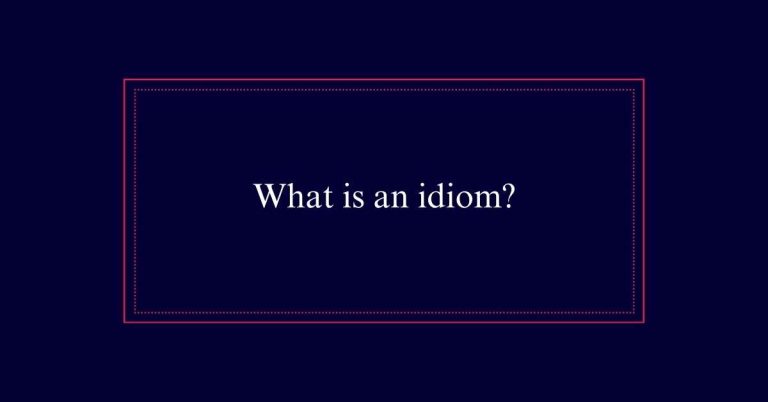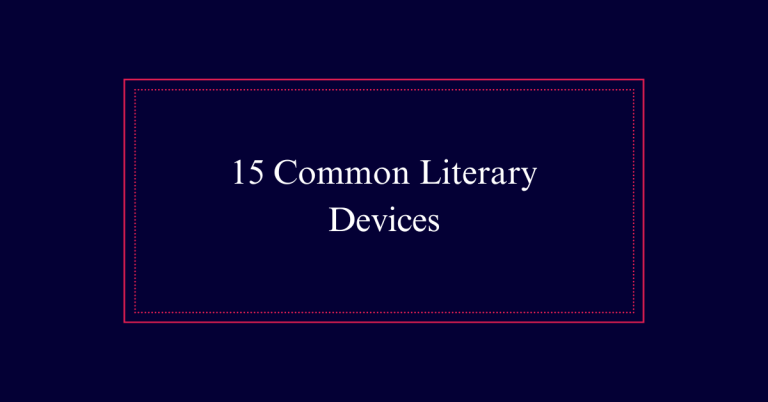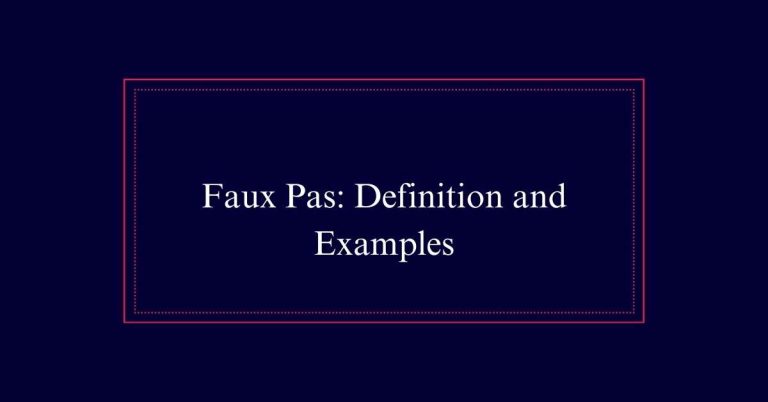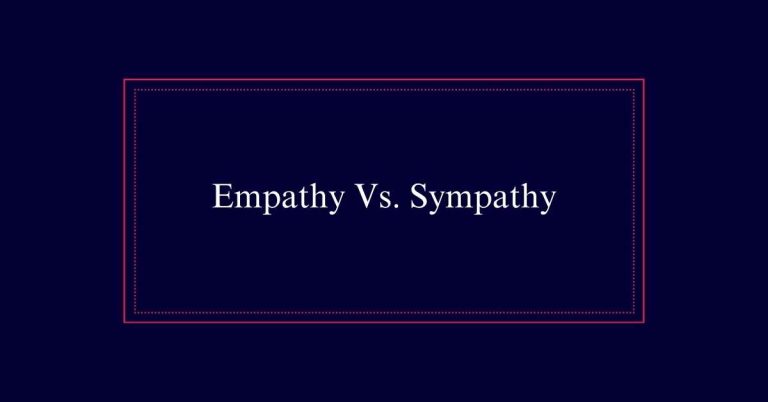Farther Vs. Further
‘Farther’ and ‘further’ are often used interchangeably, but they have distinct meanings. ‘Farther’ refers to physical distance, as in ‘She ran farther than before.’ ‘Further,’ on the other hand, is broader and can refer to additional extent or degree, as in ‘For additional information, contact us.’ Additionally, ‘further’ can also function as a verb meaning to advance a cause, like ‘She aims to further her career.’
Definitions of Farther
Farther is defined as indicating a greater physical distance. It is often used to describe measurable space between two points. For example, ‘The store is farther down the road.’ This term strictly refers to tangible, physical distances that can be quantified.
Additionally, farther can be used to describe a more advanced point in a process or journey. For instance, ‘We have traveled farther than expected.’ It’s important to note that while farther is commonly used in American English, it is less prevalent in British English.
Definitions of Further
In contrast to ‘farther,’ ‘further’ encompasses a broader range of meanings beyond just physical distance.
As a verb, ‘further’ means to advance or promote progress, often in a project or cause. For example, one might further their education or career.
As an adverb, it signifies something additional or also, such as in ‘Furthermore, the meeting will be held tomorrow.’
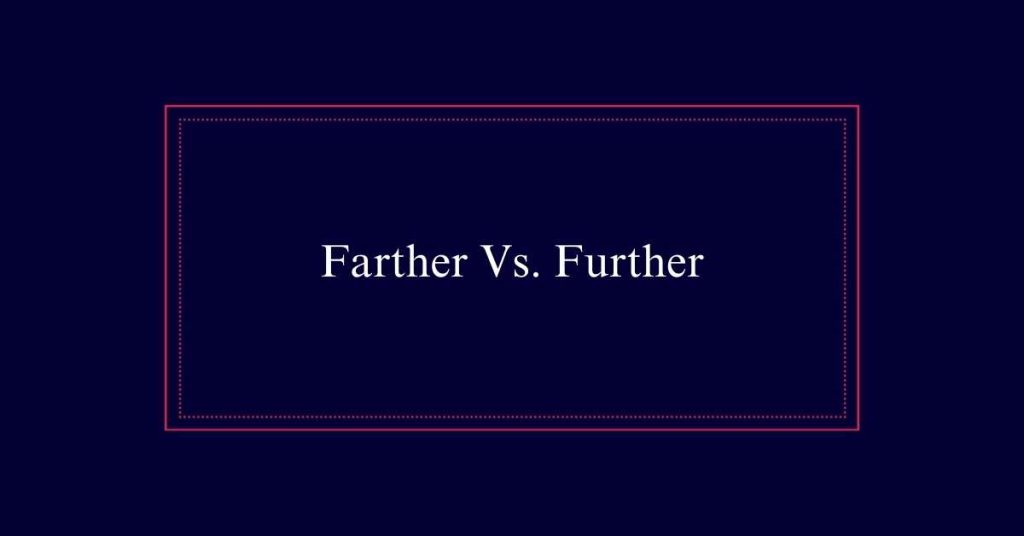
As an adjective, ‘further’ means more, extended, or additional. For instance, one might need further information to complete a task.
Unlike ‘farther,’ ‘further’ can describe both literal and metaphorical distances, making it more versatile in usage.
Farther as an Adverb
When used as an adverb, ‘farther’ specifically refers to going a greater distance in a physical sense. It is often employed to describe measurable spaces between two points. For example, one might say, ‘The next town is farther down the road.’ In this scenario, ‘farther’ denotes a tangible, quantifiable distance.
Unlike its counterpart ‘further’, ‘farther’ is limited to physical separation. It does not imply additional or metaphorical distance. This usage makes it particularly useful for clear, precise communication when discussing physical geography or movement.
Hence, when the situation involves a literal journey or spatial measurement, ‘farther’ is the preferred term to maintain accuracy and clarity.
Further as an Adverb
As an adverb, ‘further’ expands its usage beyond physical distance to also mean ‘in addition’ or ‘moreover’. This dual functionality distinguishes ‘further’ from ‘farther,’ which strictly pertains to distance. When ‘further’ is used to indicate additional information or continuation, it enhances the clarity of communication. For example, “We need to discuss this further,” implies a need for more discussion beyond the current point.
Here is a comparison to illustrate its usage:
| Usage Context | Example Sentence |
|---|---|
| Physical Distance | The store is further down the road. |
| Additional Information | Further, we must consider the costs. |
| Continuation | Let’s investigate the matter further. |
| Advancing a point | Further, the data supports our theory. |
Farther as an Adjective
How does ‘farther’ function as an adjective in English?
As an adjective, ‘farther’ specifically denotes a greater physical distance. It is used when comparing two or more objects or places to indicate which one is more distant.
For example, in the sentence ‘The library is farther from the park than the school,’ ‘farther’ describes the greater distance between the library and the park compared to the school.
This term is exclusively linked to measurable, tangible distances and does not extend to metaphorical or abstract uses.
As such, ‘farther’ should be chosen when the intent is to emphasize a literal, physical separation in space.
Further as an Adjective
Further, as an adjective, signifies something additional or more extended beyond what already exists. This usage is common in various contexts, providing clarity and specificity. When describing additional resources, tasks, or information, ‘further’ is the appropriate choice.
Consider the following examples:
- Additional Resources:
‘The library offers further reading materials for advanced studies.’
- Extended Tasks:
‘The project requires additional analysis to guarantee accuracy.’
- Supplementary Information:
‘For more details, please refer to the appendix.
Further as a Verb
To further a cause or project means to advance it and aid its progress. When used as a verb, “further” implies taking steps to move something forward or improve its status. Whether it is a business initiative, a charitable campaign, or personal development, the objective is to make significant progress. In contrast, “farther” cannot serve as a verb.
Here is a comparison of how “further” is applied:
| Context | Example Sentence | Explanation |
|---|---|---|
| Business | “We aim to further our market reach.” | Expanding business operations |
| Education | “He wants to further his studies.” | Continuing academic learning |
| Social Causes | “They worked to further environmental protection.” | Promoting ecological initiatives |
| Personal Goals | “She took steps to further her career.” | Advancing professional aspirations |
| Research | “The study will further our understanding.” | Enhancing knowledge through investigation |
Physical Distance Usage
While ‘further’ serves as a versatile verb, both ‘farther’ and ‘further’ are often used to describe physical distance. Understanding their usage can aid in clear communication.
Here are three key points to take into account:
- Farther: Primarily used to denote greater physical distance. Example: ‘She walked farther than anyone else.’
- Further: Can also describe physical distance but is more flexible. Example: ‘We need to drive further down the road.’
- Interchangeability: In many contexts, using either term is acceptable when referencing physical distance.
Metaphorical Distance Usage
In discussions of metaphorical distance, ‘further’ is the preferred term to express concepts beyond physical space. When we talk about advancing ideas, goals, or abstract concepts, ‘further’ is the correct choice. For example, one might say, ‘We need to advance our understanding of climate change,’ meaning to progress or deepen knowledge.
‘Further’ is also used in expressions such as ‘farther from the truth,’ indicating something is entirely incorrect. Unlike ‘farther,’ which is limited to physical distance, ‘further’ encompasses a broader range of meanings. This includes progress, extent, and additional information.
Therefore, ‘further’ serves a versatile role in both literal and figurative contexts, making it essential for conveying metaphorical distance effectively.
Common Misunderstandings
Many people often confuse ‘farther’ and ‘further’ due to their overlapping meanings in certain contexts. This confusion often leads to common misunderstandings.
Here are three key areas where this happens:
- Physical Distance: Both terms can describe physical distance, but ‘farther’ is preferable. For example, ‘She walked farther down the road.’
- Metaphorical Distance: ‘Further’ is used for abstract or metaphorical distances. For instance, ‘We need to discuss this further.’
- Verb Usage: Only ‘further’ can be used as a verb, meaning to advance or promote. For example, ‘We aim to further our knowledge.’


